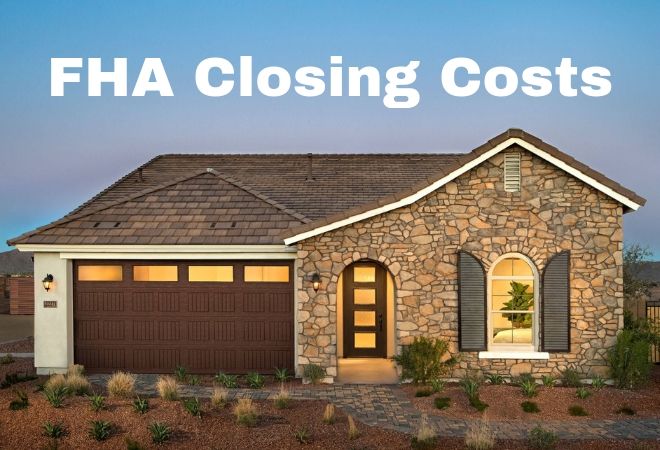
FHA loans account for almost 30% of all residential mortgages today. Although they offer an opportunity to purchase a home with a low down payment, the FHA closing costs can be significant if not managed properly.
An FHA loan is a mortgage that is originated by FHA approved lenders, but is also insured by the Federal Housing Administration. FHA loans permit a down payment as small as 3.5% for credit scores as low as 580.
FHA closing costs will be approximately 2%-4% of the loan amount, depending upon your loan amount and credit score. Here is a list of common FHA closing costs that are typical and ones you should be prepared to pay.
You may or may not have to pay all of the fees referenced above. Some of them are absolutely mandatory. Some of the fees are lender based while other costs such as the appraisal are generated by third parties.
The loan origination, discount points, underwriting fee and document preparation costs may be negotiated with the lender. Keep in mind that some of these are a profit center for the lender. They also profit from the interest rate that you are locked into so as the lender removes some of these fees, the interest rate offered could increase slightly.
The FHA Mortgage Insurance will be a significant portion of your total closing costs. You will have the upfront mortgage insurance premium at closing, but then also a monthly mortgage insurance payment for the life of the loan. This article on Standard FHA mortgage insurance will help you to fully understand the costs and how it works.
The FHA guidelines permit the seller to contribute up to 6% of the loan amount towards closing costs. This likely needs to be negotiated up front. It is a great tool for the seller to get a higher sell price in exchange for covering the closing costs.
Seller closing costs contributions are extremely common today. If you do not have the funds needed to cover your FHA closing costs, then think about potentially paying close to full price in exchange for the seller paying for your closing costs.
The FHA closing costs can be included into the loan although there are specific guidelines around this topic that are constantly changing. We suggest speaking with an FHA lender before finding a home and discuss how you can have your closing costs included in the loan amount.
With an FHA streamline refinance, your closing costs will be a bit lower than it will for a purchase. One of the benefits of the streamline refinance is there is no need for a new appraisal. The original purchase price will be used as the home value. This really helps during times when real estate values have declined. It also will save you hundreds of dollars.
The other benefit of the FHA streamline refinance is the reduced up-front mortgage insurance premium. When you refinance, you will get a credit for a portion of the up-front mortgage insurance premium that you paid when you bought the home.
Lenders absolutely can pay for your FHA Closing costs but keep in mind the costs will come out of their commission. As a result, you can expect to pay a higher interest rate in exchange for this benefit.
Usually the best FHA lenders near you will offer this option up front as a way to help you to purchase your home. This is especially true if they see you are low on funds to pay for the down payment, closing costs, and reserves. With interest rates at an all-time low anyway, having a slightly higher rate to offset your closing costs may be a good option for you.
Understanding the FHA closing costs and your options to pay for them is extremely important and it a step you should take before searching for a home. Sit down with a lender well before you begin your home search and discuss the closing costs and also your current credit situation.
Helpful Resources
Can You Still Get a Mortgage with Bad Credit?
Getting a Mortgage Without Tax Returns
Are FHA Loans Available for People with Bad Credit?